UN Women staff trained on disability inclusion
Date:
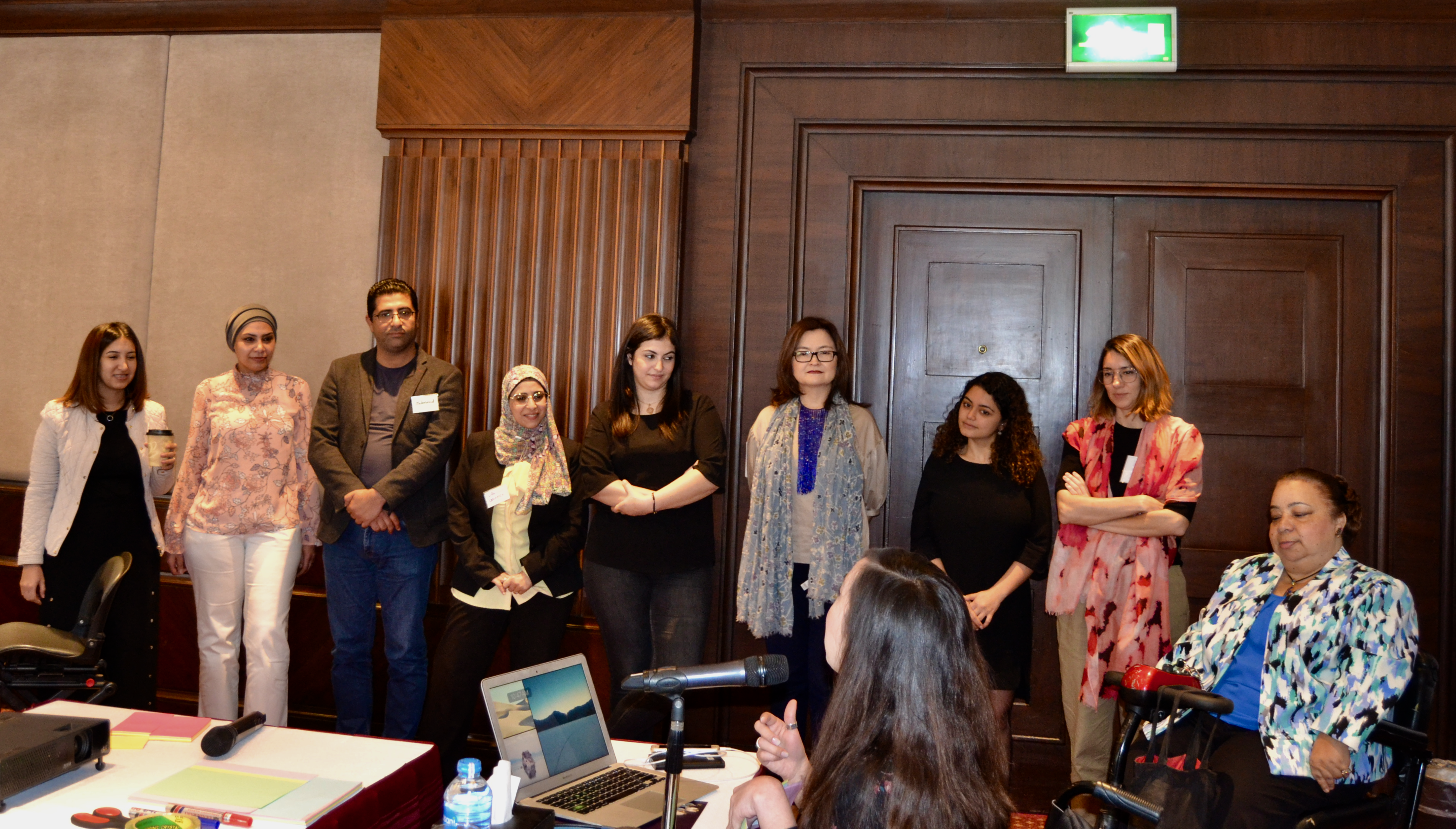
The UN Women Regional Office for the Arab States (ROAS) held its first Disability Inclusion capacity building training for regional and county office personnel from Egypt, Jordan, Lebanon and Palestine between 21-23 April in Cairo.
UN Women decided to develop and deliver the training based on the recommendations to increase awareness and strengthen skills within the UN system of the UN Disability Inclusion Strategy and the UN Women Strategy The empowerment of women and girls with disabilities – Towards Full and Effective Participation and Gender Equality both launched in December 2018.
In April 2018, UN Women signed a memorandum of understanding with the International Disability Alliance (IDA) which includes plans to develop different capacity building activities from webinars to trainings on disability inclusion. This was the first time that such a training was provided to a UN Women regional office in collaboration with the IDA.
The training aimed at providing the UN Women personnel in the Arab States region with skills and tools on gender disability inclusion for their operations, policy and programmatic work. It covered a wide range of topics including global, regional and national normative frameworks on disability; the UN disability inclusive policy frameworks; inclusive communications, office-inclusive audits; simulated disability inclusive exercises; inclusive management; women with disabilities political participation; and data collection.
Voices from the training
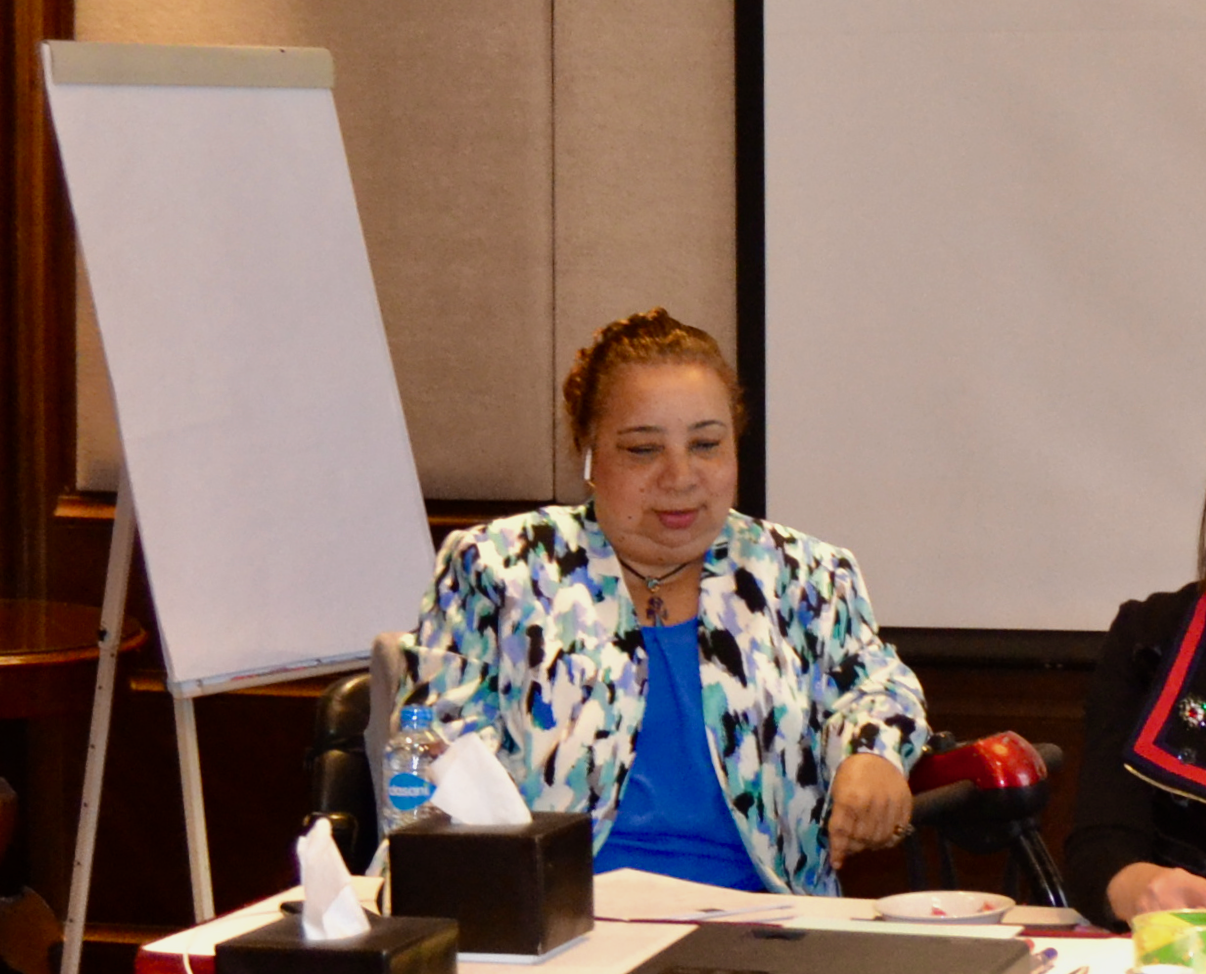 “Women with disabilities are ten times more likely to be abused than abled women.”
“Women with disabilities are ten times more likely to be abused than abled women.”
Heba Hagrass
Member, Egyptian Parliament
Board Member, Egyptian National Council for Women
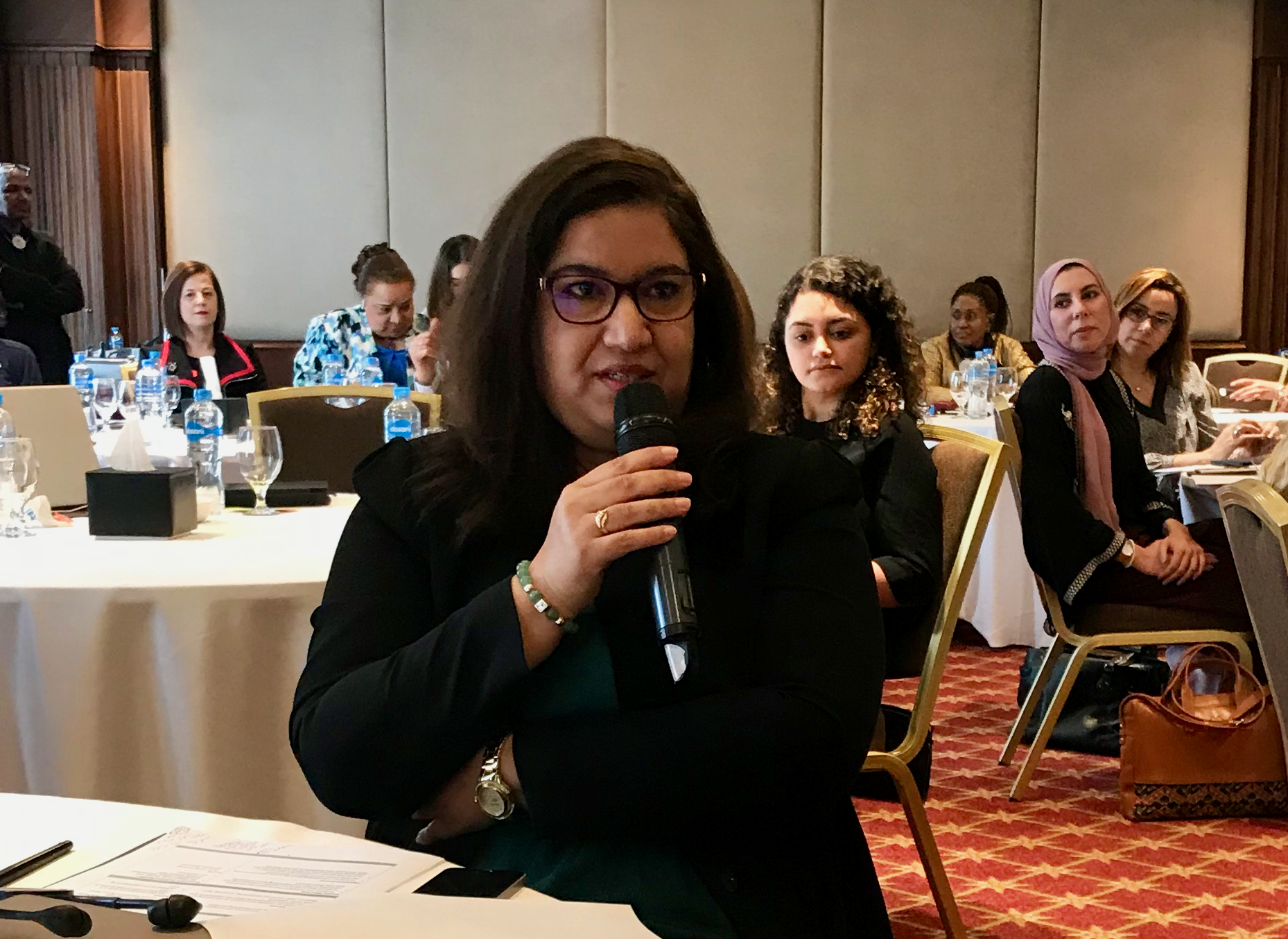 “We don’t need a sympathetic approach, but a human rights approach for people living with disabilities, starting with having disabled-accessible roads and buildings.”
“We don’t need a sympathetic approach, but a human rights approach for people living with disabilities, starting with having disabled-accessible roads and buildings.”
Hayat El Machfou
Member, Moroccan Parliament
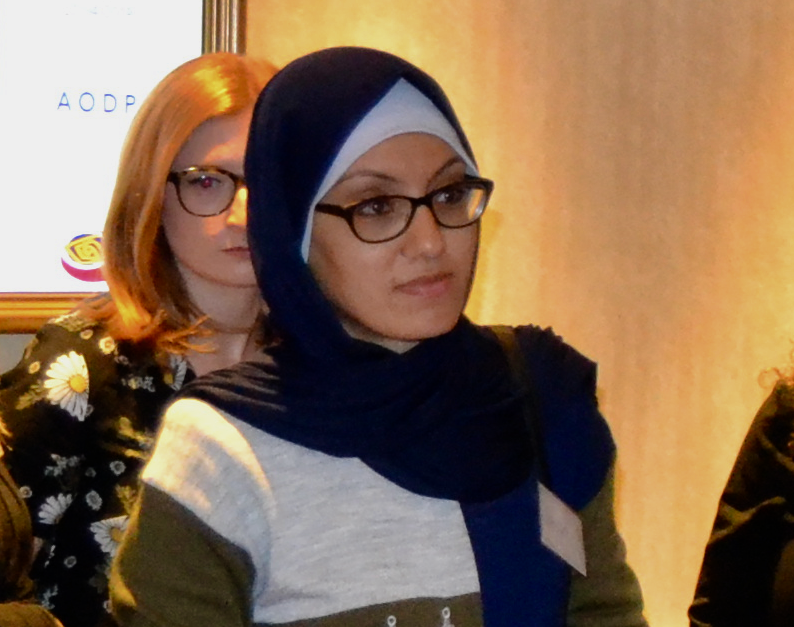 “We need a society that is comprehensive and inclusive, where there is no difference between men and women with disabilities.”
“We need a society that is comprehensive and inclusive, where there is no difference between men and women with disabilities.”
Wessal Koraz
Head Teacher, School for the Deaf and Blind, Palestine
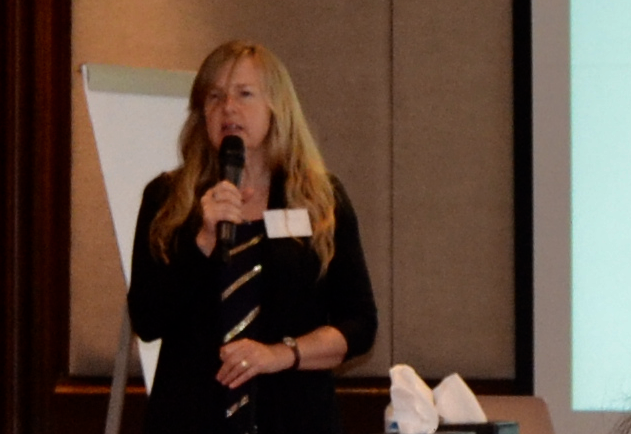 “I am proud to represent women with disabilities. I think that we need to speak up and raise our voices to let the rest of the world know what we are able to do.”
“I am proud to represent women with disabilities. I think that we need to speak up and raise our voices to let the rest of the world know what we are able to do.”
Diane Bergeron
Vice President, International Engagement World Blind Union, Canada
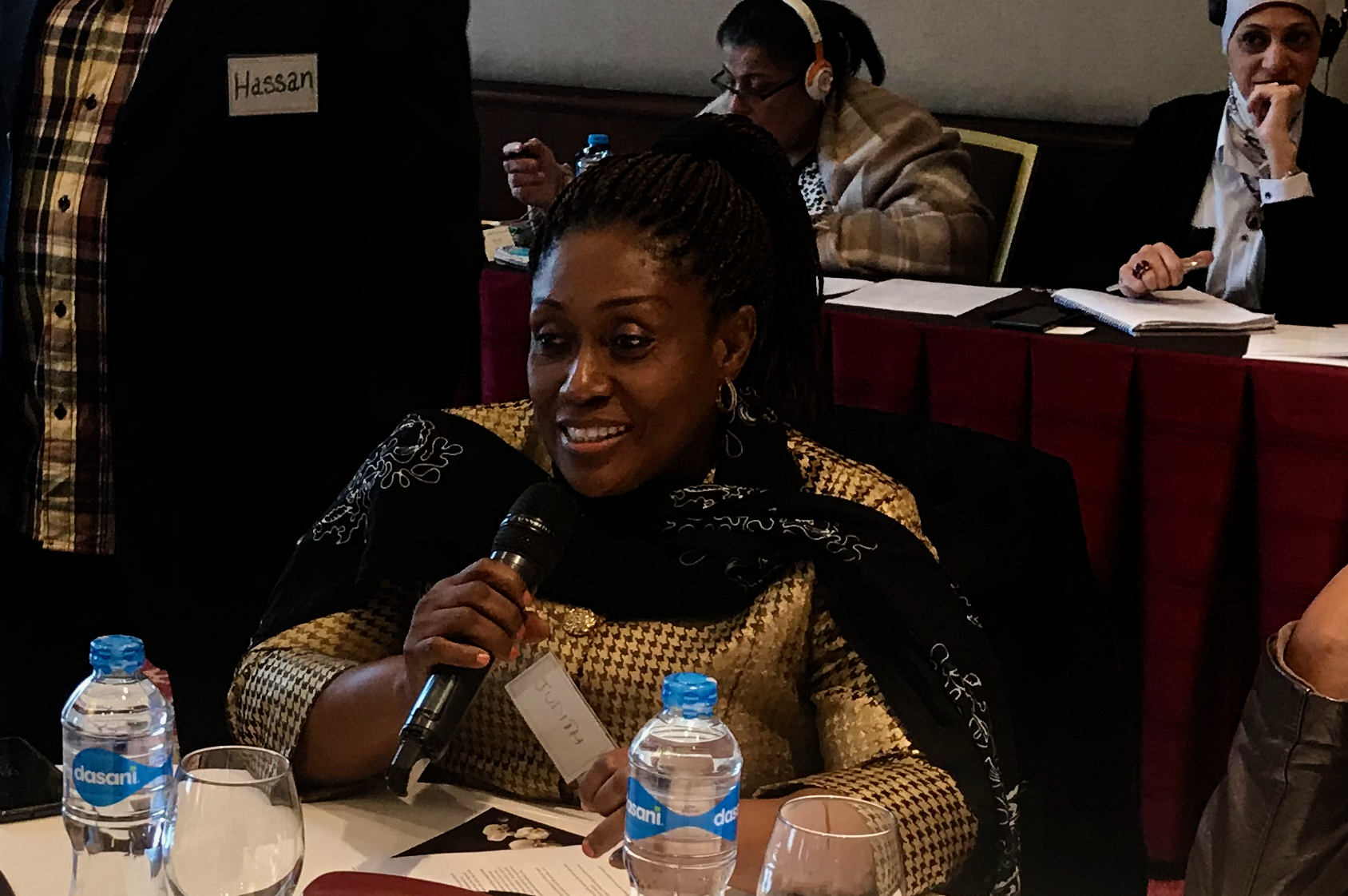 “In the development world we have to be less emotional and more practical. Disability is not a negative word.”
“In the development world we have to be less emotional and more practical. Disability is not a negative word.”
Judith Ekaete Umoh
President, Joint National Associations of Persons with Disabilities, Nigeria.
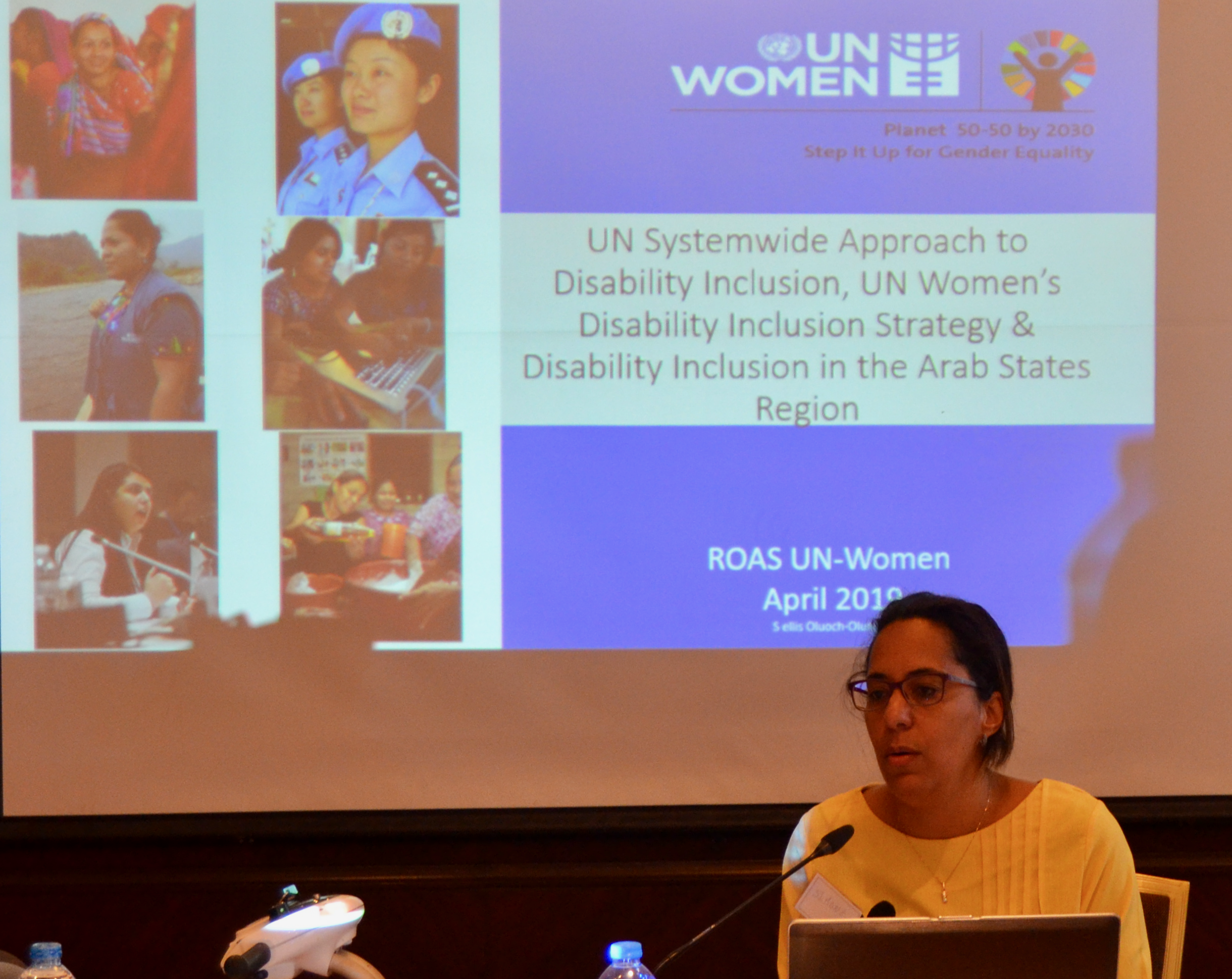 “There is a lot of sensitivity around the language of disability and fear by people with disabilities who wish to be recruited by the UN abound. The UN and UN Women’s disability inclusion strategies seek to end that era.”
“There is a lot of sensitivity around the language of disability and fear by people with disabilities who wish to be recruited by the UN abound. The UN and UN Women’s disability inclusion strategies seek to end that era.”
Simone Ellis Oluoch-Olunya
Women’s Political Participation Advisor, UN Women Arab States
All photos: UN Women/Nourhan El-Nagdy